Trak 1 Background Check Errors. We Can Help!
- Blog
- Employment Background Check Errors
Trak 1 Background Check Errors. We Can Help!

Corporations and landlords pay Trak-1 to screen you to find out if you’re suitable. But Trak-1 can make mistakes.
What happens when Trak-1 makes a mistake on your background screening report? Well, you lose out on whatever job or apartment you were applying for. But there are actions you can take to get recover financially and attorneys who can help you hold Trak-1 accountable.
If you have applied for a new job, a new apartment, or a new volunteer position, you may have been asked to authorize a Trak-1 background screening check. Trak-1 is part of a company called PeopleFacts, which offers Trak-1 employment screening and Trak-1 credit report services to employers and landlords who want to hire and rent to reliable people.
We understand the need for background screening, but as lawyers for consumers, we see the chaos and the damage that mistakes in a person’s background check can create. So we want you to know your rights, the laws that Trak-1 must obey, and what you should do if you discover incorrect information in a Trak-1 background check or if you have been denied a job or a home due to wrong data or wrongdoing by Trak-1.
PeopleFacts Trak-1 Background Check
The Trak-1 technology examines, collects data for, and reports on several areas of a person’s history. These include:
- Criminal history. Trak-1 culls information from national, state, county, and local criminal databases to uncover and report on a person’s criminal record. The time that Trak-1 can look back on convictions and arrests depends on various state laws. The experienced credit report lawyers at Consumer Attorneys can help you identify the applicable laws in your state.
- Employment verification. Trak-1 verifies that an applicant has worked where they say they have worked. In some instances and for some jobs, Trak-1 will initiate a Trak-1 credit inquiry to gauge a person’s financial history. This credit inquiry will likely show up on your credit report as “Trak-1 credit inquiry” or some variation like “Track One background checks” and should not be categorized as a hard inquiry on your credit report.
- Education confirmation. Trak-1 confirms the accuracy of the education credentials a person identifies on their job application. This may include professional license validation.
The Trak-1 report provides employers with a thorough review of a person’s past. Employers look for red flags or other information that could influence their hiring decisions. Therefore, in order to be reliable, a Trak-1 report must be accurate. A mistake in a person’s Trak-1 report will unfairly disqualify someone from a job, housing opportunity, or volunteer position.
Trak-1 Credit Report
For certain jobs, especially jobs with financial responsibilities, and for tenant applications, the Trak-1 Credit Report may be another component of the Trak-1 background check. This report provides those who request it with a thorough history of the applicant’s financial history, credit scores, repayment habits, debt amounts, and any records of bankruptcies or collections. Employers and landlords use it as a gauge of a candidate's financial responsibility.
Inaccuracies in all the Trak-1 reports can and do happen for many reasons. Clerical errors and misspellings can generate inaccurate information. Mistaken or stolen identities also create errors. Additionally, the technology and speed with which Trak-1 creates its reports can foster errors.
As with any credit report, a federal law called the Fair Credit Reporting Act (the “FCRA”) applies to Trak-1 Credit reports. The FCRA protects you from inaccurate, outdated, misleading, or just plain wrong information in credit reports. The FCRA requires credit reporting agencies to maintain and distribute credit reports that are correct and complete. The FCRA also gives you the right to dispute any inaccuracies and requires credit reporting companies to correct the report.
People have the right to dispute incorrect information in their Trak-1 reports. And Trak-1 must investigate and correct the information you dispute. If Trak-1 does not obey the laws governing background report disputes or if the damage to your opportunities or reputation has already been done, you may be entitled to compensation. Talk to an experienced background check attorney at Consumer Attorneys to talk about your Trak-1 problem and see if a lawsuit may be appropriate.
Consumer Attorneys encourages you to request and review your credit information before you find yourself job hunting and missing out on an opportunity because of an error in a Trak-1 background check report. You have the right to dispute errors, and Trak-1 has to investigate. If you discover an error or encounter any sort of challenges or resistance from Trak-1, you should contact Consumer Attorneys.
To schedule a consultation about Trak-1 or employment background checks or credit reports in general with a lawyer at Consumer Attorneys:
We will listen to you, assess your case, help you determine the best strategy, and, if necessary, file a lawsuit against background check companies to get you compensation for the damage they have caused.
- call us at +1 877-615-1725
- email us at info@consumerattorneys.com
- submit a form for a free consultation or have a live chat. Because we know you work hard and are not always free from 9-5, we are available 24 hours a day, seven days a week.
Frequently Asked Questions
If you see “Trak-1” on your credit report, it likely means that there was an inquiry from a company called Trak-1. Trak-1, part of a company called PeopleFacts, does background checks on job candidates, rental applicants, and volunteers. A Trak-1 inquiry on your credit report means that the background check included a review of your credit history.
While a background check is standard for many employers and property managers to make sure they are hiring and renting to reliable people, they need your permission to do a background check. The Trak-1 inquiry is usually a “soft inquiry” and should not affect your credit score like a “hard inquiry” typically would.
Regarding criminal history, there are no federal restrictions on how far back Trak-1 can look. But some state laws do restrict reporting on older convictions. Typically, Trak-1 can report on criminal convictions indefinitely, whereas they are usually limited to the past seven years for reporting on non-conviction information.
Regarding employment verifications, Trak-1 typically goes back seven years, which is common in the background check reporting industry. Regarding education, Trak-1 will look back as far as necessary to confirm an applicant’s education. All these time frames can vary depending on your state laws and the type of position for which you are applying.


Daniel Cohen is the Founder of Consumer Attorneys. Daniel manages the firm’s branding, marketing, client intake and business development efforts. Since 2017, he is a member of the National Association of Consumer Advocates and the National Consumer Law Center. Mr. Cohen is a nationally-recognized practitioner of consumer protection law. He has a we... Read more

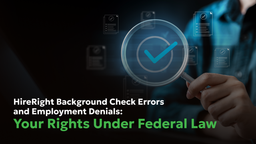



Related Articles
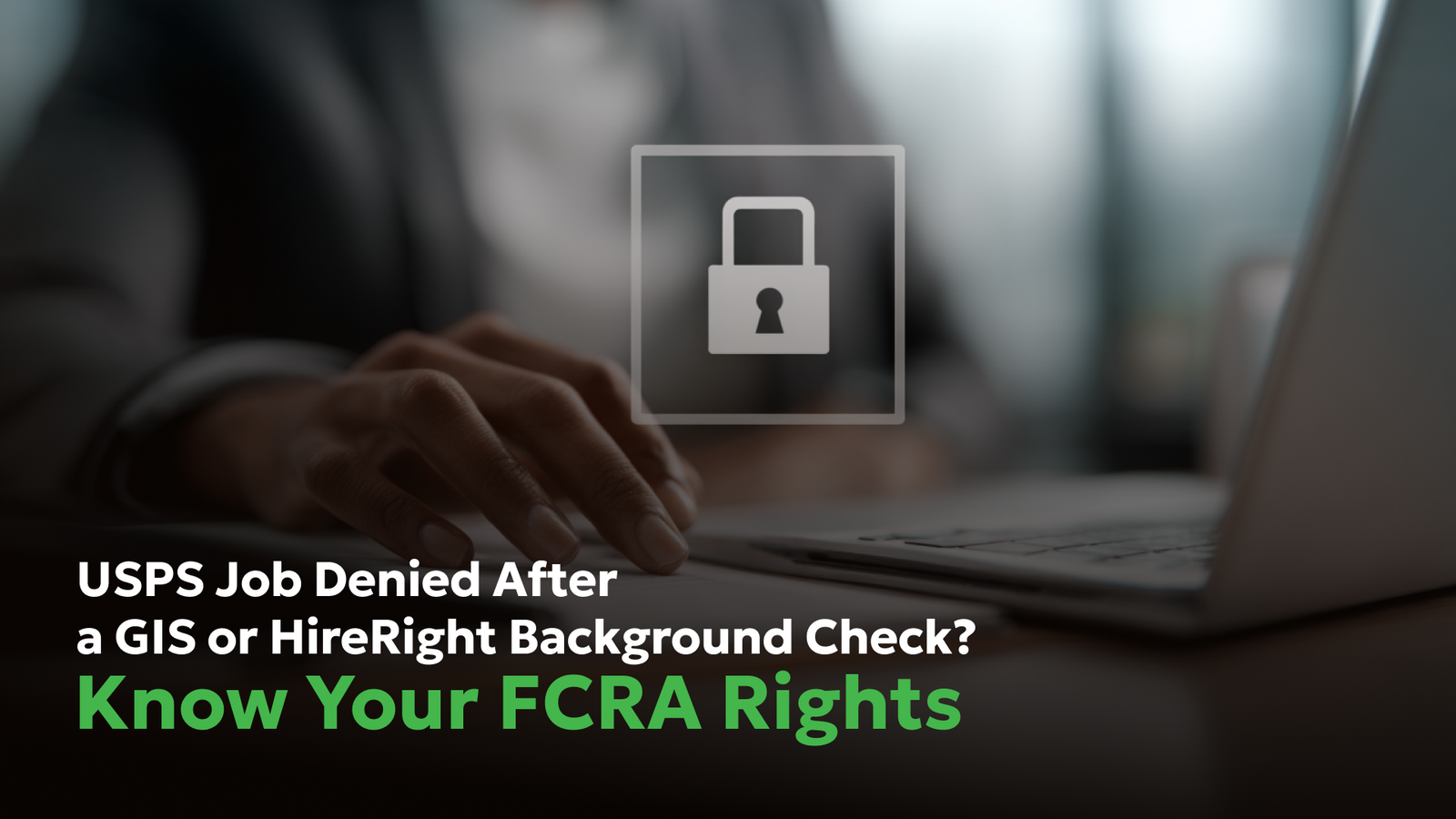
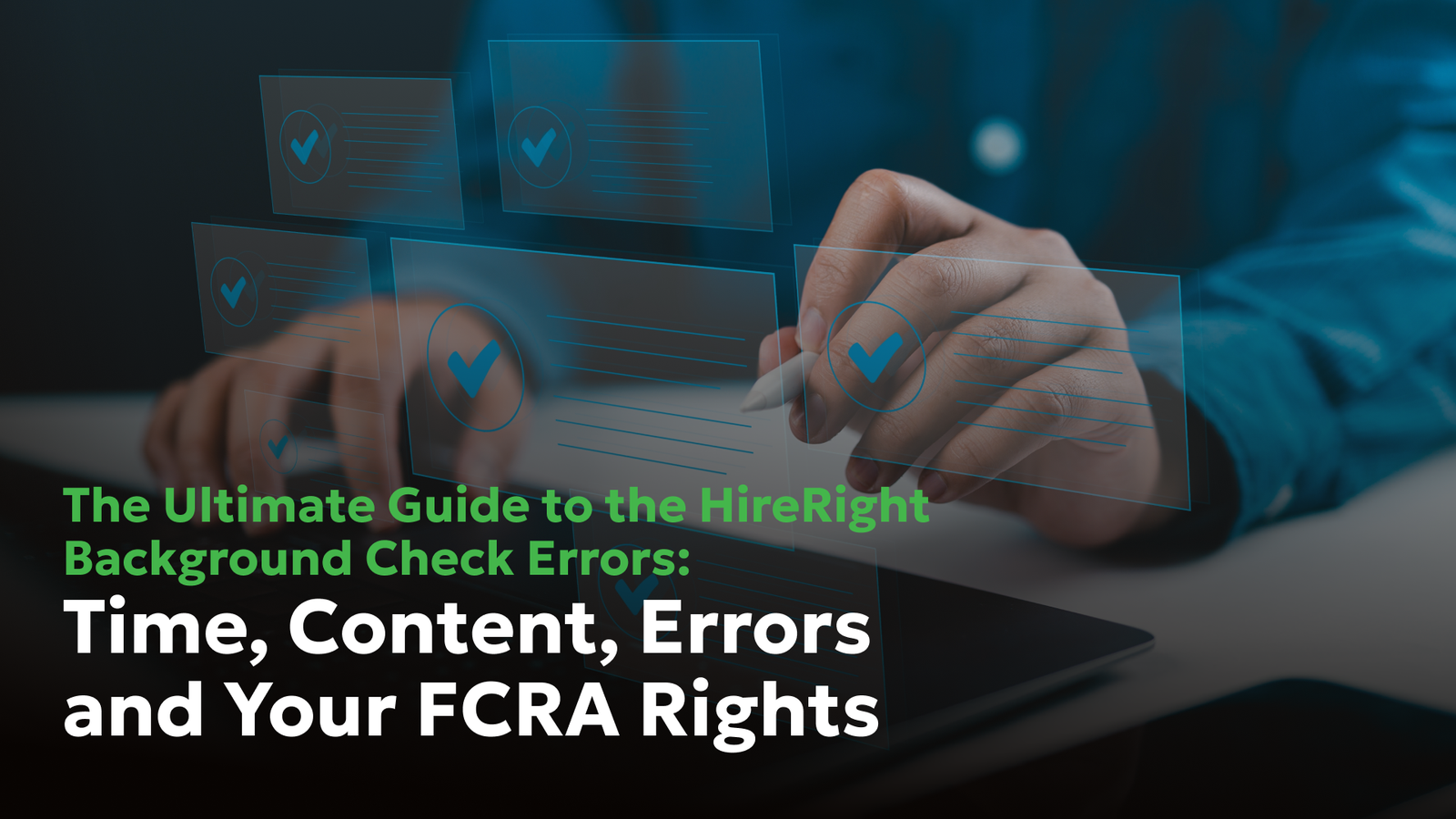
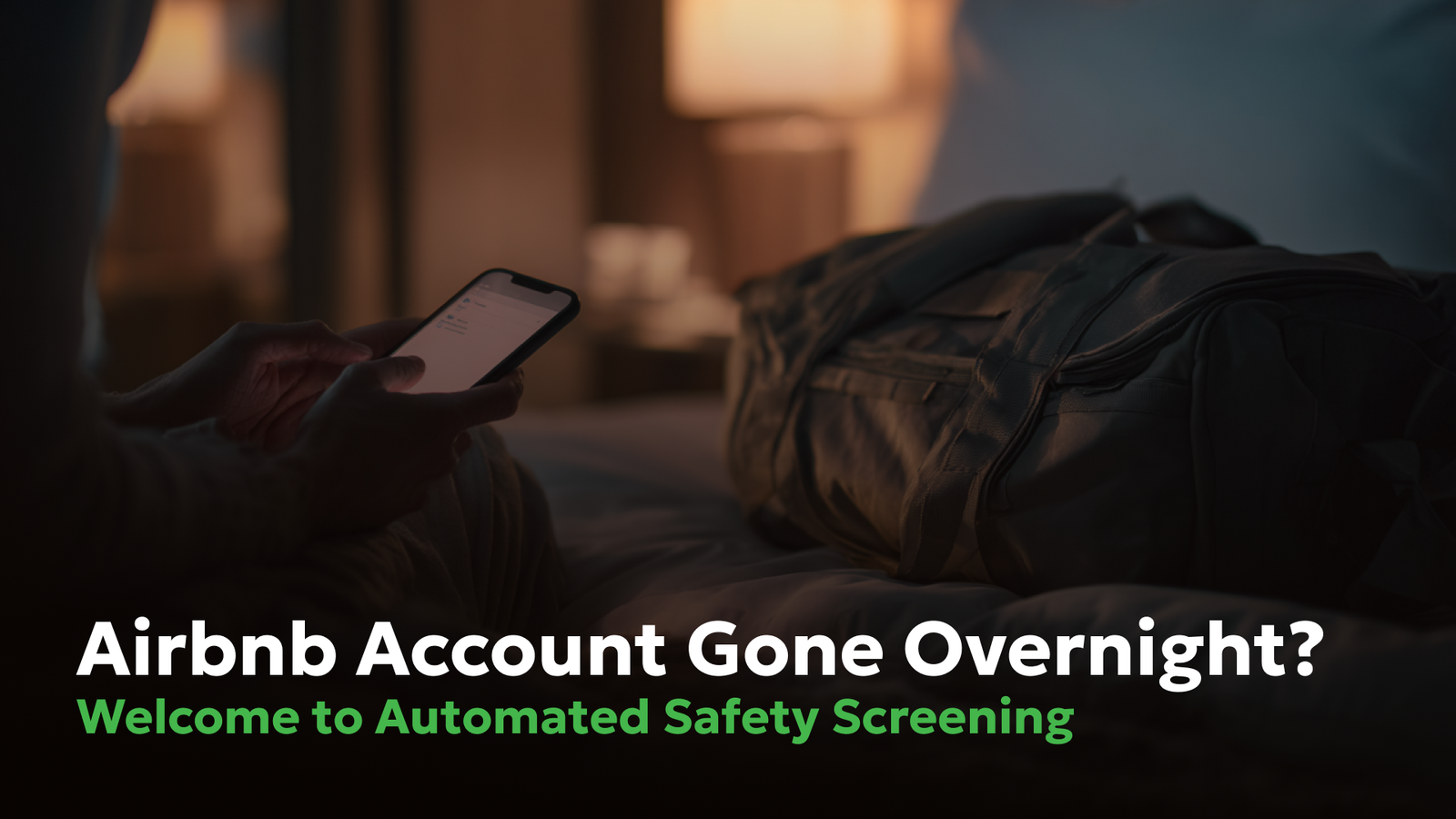
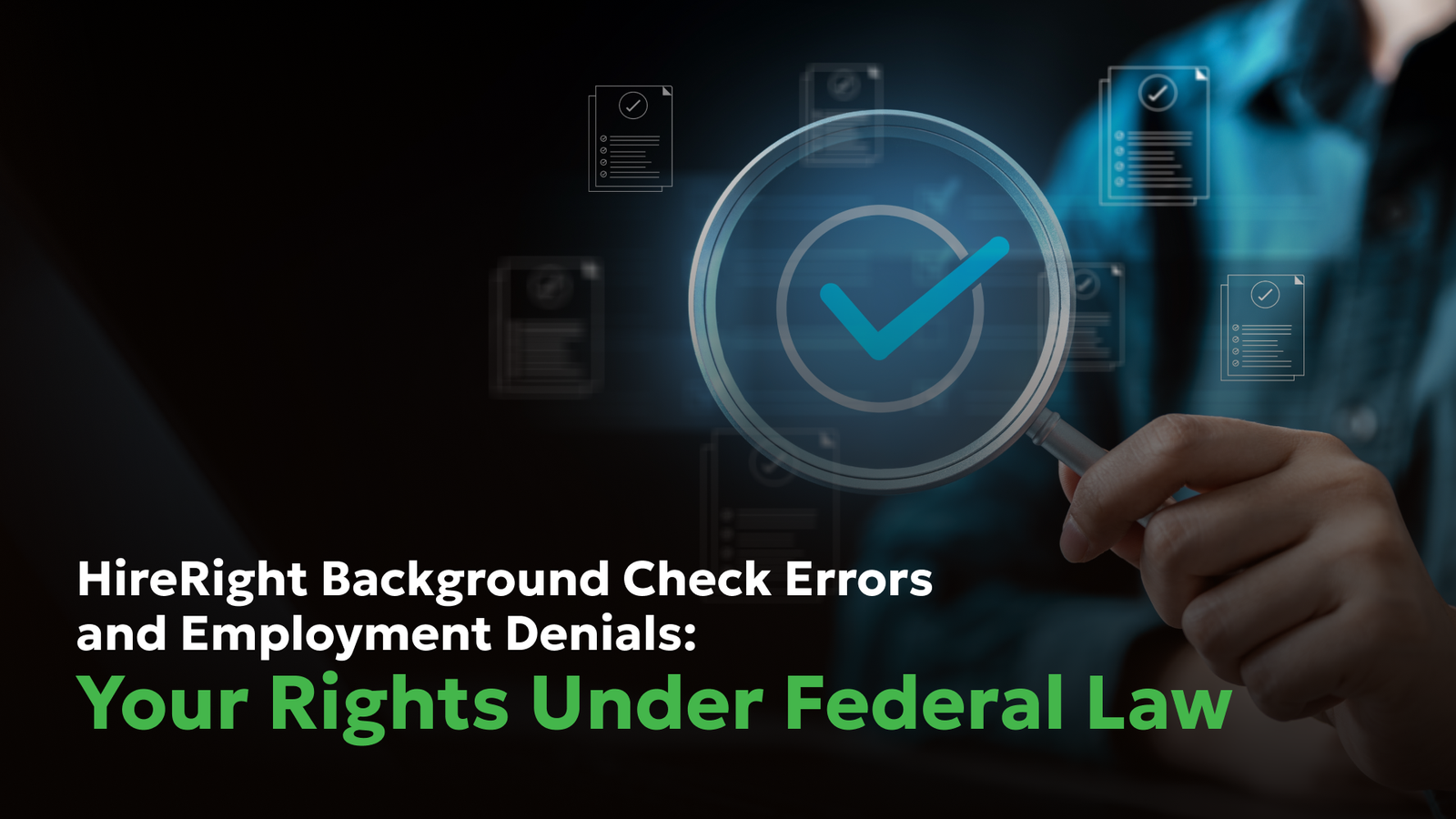
R
ONGS™You pay nothing. The law makes them pay.


